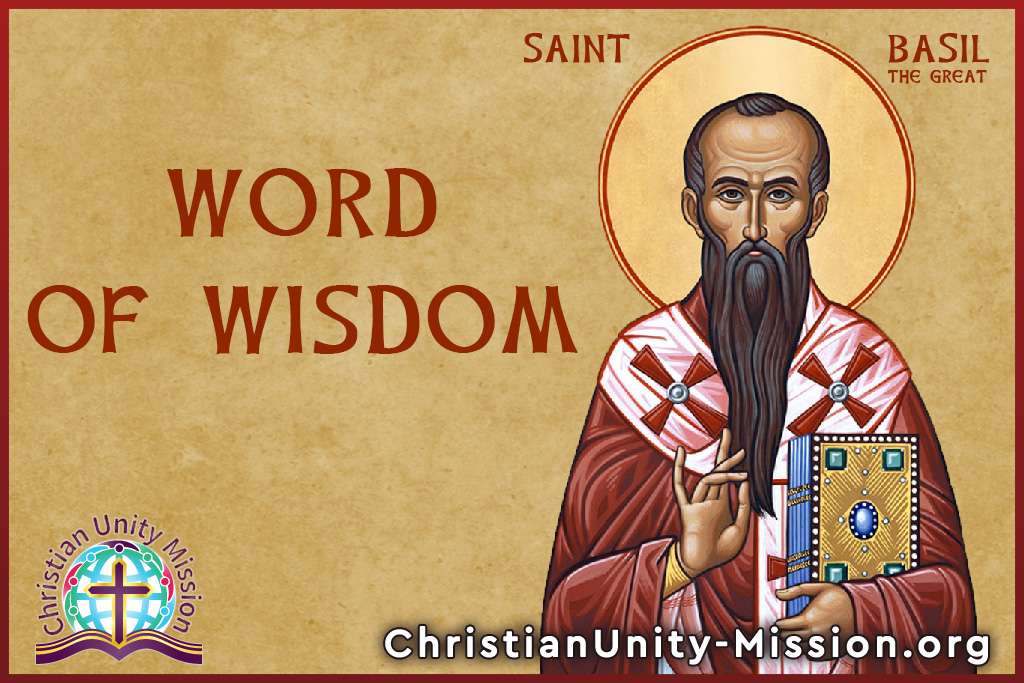
“If you see your neighbor in sin, don’t look only at this, but also think about what he has done or does that is good, and infrequently trying this in general, while not partially judging, you will find that he is better than you.”

History has failed at different stages and in many places worldwide to present the Gospel of Christ for what it is. In contrast, religious people and some clergymen have shown faint images of a God who does nothing for human beings. They deny the reality of the crude contradiction between an Old Testament full of the history of the ancient people and their laws ordering the killing of males by the sword and the plundering of women and children (Deuteronomy20:13-14,) and the Gospel of Christ and His New Covenant calling us to love our enemies and pray for those who persecute us (Mathew 5:44-45.) Their churches and meetings became devoid of Christ’s works of love to heal the sick and to free those bound from Satan. Unfortunately, these ministries turned into a form of business and wealth. And it is these images, which do not reflect the truth of the Gospel or Christ’s applied works in human lives, that the young people see as Christianity as presented by them.
Therefore, it was necessary to alert everyone’s mind to the importance of reading the Gospel of the New Testament yourself to find out the truth of Christianity and the principles of the teaching of Christ, free from the Jewish intellectual influences carried by many missionaries and preachers. They underestimated and clouded the importance of God’s appearance in the flesh in Jesus Christ to reveal to the whole world the truth and the essence of God the Father by holding on to the preaching of the stories of the ancient people and their history who were waiting for the Savior’s coming as their prophets prophesied. Jesus Christ, the only begotten Son of God, came to reveal to all humanity the love of the Heavenly Father, His salvation plan, and His direct intervention in the lives of His people yesterday, today, and tomorrow. He came to give us the power over sin and death, which entered the world through Satan’s temptation, “Therefore, just as through one man sin entered the world, and death through sin, and thus death spread to all men, because all sinned” ( Romans 5:12.) God the Father is not a killer, He is the source of life to man “ For God so loved the world that He gave His only begotten Son, that whoever believes in Him should not perish but have everlasting life. For God did not send His Son into the world to condemn the world, but that the world through Him might be saved.” (John 3:17.) The killer is Satan who came to steel, slaughter, and to destroy, “The thief does not come except to steal, and to kill, and to destroy. I have come that they may have life, and that they may have it more abundantly”(John 10:10.) If we begin a real and profound relationship with Christ; in that case we will choose the life-changing power of Christ’s presence that is active in us, that changes us from a formal Christianity that has done nothing for man to the life of Christ filled with the triumph over evil, joy, and peace with God and the others.
Now we know that God gave us commandments to follow not as rules to be obeyed, and if not obeyed, we will be punished, but as guidance to be away from the devil, the enemy, and the killer of man. He created us with a free will to choose either His guidance and so to unite with His eternal life and His goodness or choose Satan’s worldly, tempting, and sinful ways and so to unite with his evil spirit, his death, and his eternal fire. This is the New Testament and Christianity.